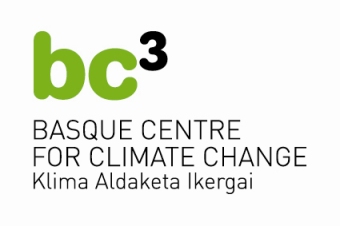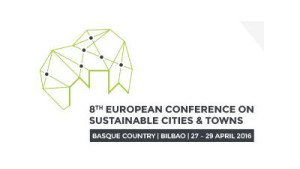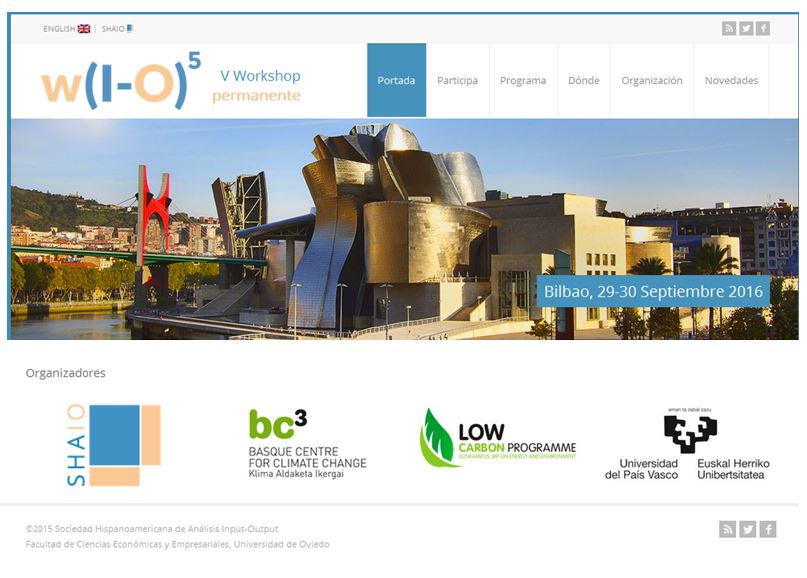1 urtarrila, 2016
Published by BC3Research at 1 urtarrila, 2016
Categories
- Projects
- Merkatura Zuzendua
- Inpaktua
- Modeloak eta tresnak
- Azpimarra
- Uncategorized
- Announcements
- BC3 Policy Briefings
- Klima Aldaketa Webguneak
- Politikariei Zuzendua
- Beste emaitzak
- Ingurugela
- News
- Laburrean
- BC3 Working Papers
- FAQs
- Gomendatutako irakurketa
- Gizarteari Zuzendua
- Politika
- Bestelakoak
- Publikazioak
- Hedabideetan
- Liburuak eta Kapituluak
- Ezagutza transferentzia
- Txostenak
- Ikerketa
- Training Caravan
- Klima Aldaketa Ulertuz
- Prentsa Oharrak
- Zientzia Zuzendariaren Blog-a
- Aldizkarietako artikuluak
- Sareak sortuz
Info.bc3research.org blog honen bitartez, BC3k sortutako berri eta ekitaldi guztiak eskuragarri eta sare sozialetan partekatzeko prest izango dituzu
14 apirila, 2016
Published by BC3Research Marta Olazabal Elisa Sainz de Murieta at 14 apirila, 2016
Categories
The 8th European Conference on Sustainable Cities & Towns, the flagship conference on local sustainable development in Europe, is taking place from 27-29 April 2016 in Bilbao, Basque Country.C3 will participate actively in this Conference and has organized a Round Table Dialogue entitled “Bridging science and policy to support cities to mitigate and adapt to climate change” where participants will be able to discuss their experiences and perceptions on current strengths and weaknesses of such partnerships and opportunities for the future based on the current and future needs of cities regarding climate planning.
30 iraila, 2016
Published by BC3Research Iñaki Arto Ignacio Cazcarro María Victoria Román de Lara at 30 iraila, 2016
Categories
El V Workshop de Análisis Input-Output. Este workshop fue organizado conjuntamente por la Sociedad Hispanoamericana de Análisis Input-Output (SHAIO), BC3, Low Carbon Programme y la Universidad del País Vasco.
26 urria, 2016
Published by BC3Research Stefano Balbi Ferdinando Villa Javier Martínez López at 26 urria, 2016
Categories
Quantifying and mapping ecosystem services (ES) that reach beneficiaries provide a key to distinguishing between the potential for benefit provision and the benefits actually accrued by society. Such a spatially explicit information framework can improve the accuracy of ES valuation and expand the value of ES assessments to decision makers.




